Iran's Islamic Propaganda Arm Targeted In Cyberattack
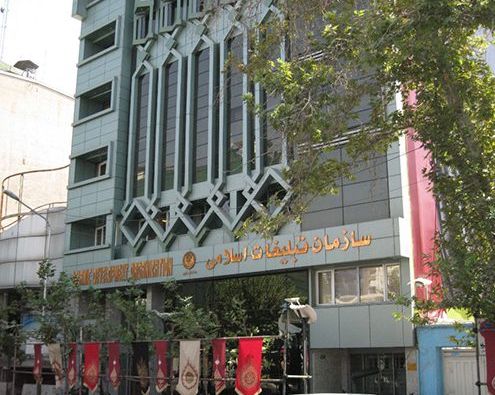
The Iranian Islamic Propaganda Organization and Hamshahri newspaper have fallen victim to a cyberattack, resulting in temporary disruptions to their online services within Iran.

The Iranian Islamic Propaganda Organization and Hamshahri newspaper have fallen victim to a cyberattack, resulting in temporary disruptions to their online services within Iran.
The hacktivist group known as Edalat-e Ali (Ali's Justice) revealed the attack on their former Twitter account, attributing the downtime to a Distributed Denial of Service (DDoS) assault.
The incident unfolded on Tuesday, commencing at approximately 15:30 Tehran time, and persisted for approximately 90 minutes before normal service was restored. Edalat-e Ali claimed responsibility for the attacks, the primary motivation, the impending anniversary of the tragic death of Mahsa Amini.
DDoS attacks are recognized as one of the more straightforward cyber threats encountered in the digital realm. In such an attack, the target server is inundated with a deluge of traffic, overwhelming its capacity and resulting in temporary service interruptions or unavailability. Their cost-effectiveness has led various groups to incorporate DDoS attacks alongside more intricate cyber operations.
Iran's internet infrastructure has been repeatedly targeted by such attacks in recent years. Notably, in February 2020, a widespread DDoS attack temporarily severed a quarter of Iran's internet traffic, described at the time by Hamid Fattahi, the then-director of the Communications Infrastructure Company, as the "widest-ranging attack experienced in Iran's history."
As a consequence of the extensive nature of these latest attacks and the substantial impact on the country's internet network, the Islamic Republic of Iran was compelled to postpone the planned launch of the Zafar satellite into space, which had been scheduled for the same day.
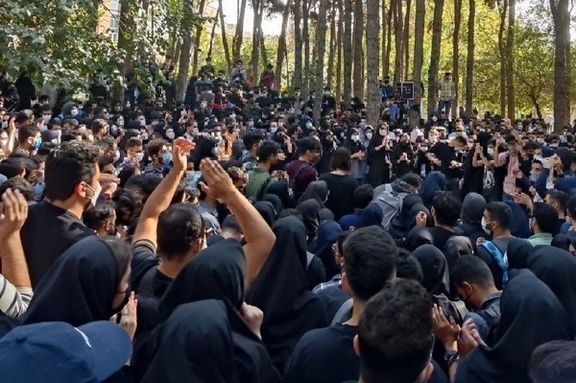
The Chancellor of Tehran University claims that dissident professors are being sacked because of “ethical issues,” while hardliners say it is a “Revolutionary act.”
“I have full knowledge that some of these individuals were terminated because they had moral issues and have been sued [by alleged victims] but they claim in the media that their termination was politically motivated,”Mohammad Moghimi, Chancellor of Tehran University, told the Iranian Labour News Agency (ILNA) Sunday.
The Ministry of Higher Education has not commented on the recent dismissals of dozens of professors. However, on August 28, the Interior Ministry released a statement denouncing criticism of the expulsions as "media propaganda" and defended the Higher Education Ministry’s "revolutionary action" against “a few professors who were academically sluggish”.
The Interior Ministry's statement also accused the sacked professors who had opposed the crackdown on students during anti-government protests, of "political immorality and media show-off," and of "defiling" the academic arena with their "factional and even anti-national views."
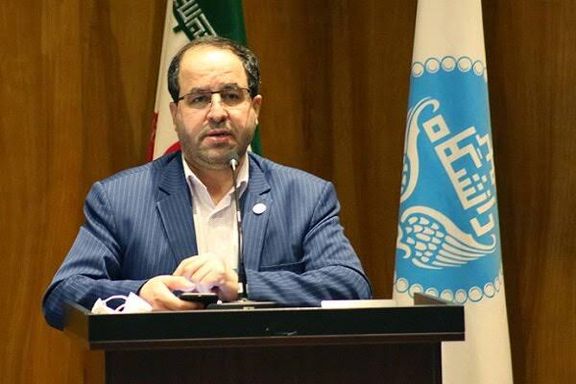
According to the reformist Etemad daily, 52 professors have been removed from their posts at several universities across Iran since President Ebrahim Raisi’s administration took office two years ago. Additionally, the Human Rights Activists News Agency (Hrana) stated last week that at least twenty-four professors have been sacked since mid-July this year.
Etemad claimed, that these professors included those who were “banned from entering their university, banned from teaching, fired, or forced into retirement” under various pretexts including “lacking academic proficiency”.
Some of the professors who have recently been terminated have stated their political beliefs and actions, including signing statements in support of last year’s protests and protesting students, as the reason for their removal from their posts.
Moghimi accused these professors of lying and called their social media statements “extremely unethical”.
Supreme Leader Ali Khamenei has on many occasions stressed that universities must be Islamic and those who are not aligned with the regime should not be allowed to teach. “Do not employ unreliable individuals in universities at any cost,” he said in a speech in July 2015. “There are good professors, employ them,” he added.
Speaking to the reformist Jamaran news website Sunday, prominent reformist politician Mohsen Mirdamadi called the recent surge in the elimination of dissident professors “the second Cultural Revolution”.
Mirdamadi said those behind the purge in universities aim to “silence universities”. “But previous experience shows that this will not happen,” he said.
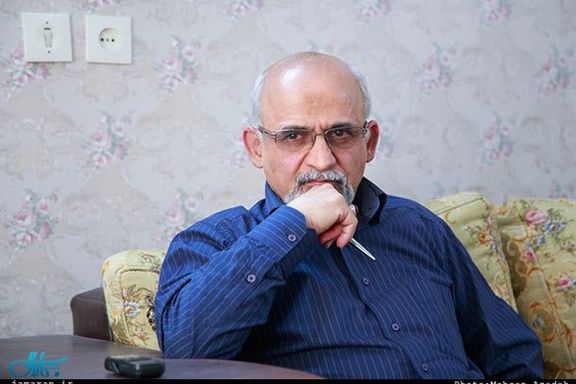
In 1980, soon after the victory of the Islamic Revolution, the new government’s Cultural Revolutionary Headquarters shut down universities for three years to purge the academia of its challengers and to enforce its own Islamic revolutionary ideology (Islamification) in higher education establishments. During this period, thousands of professors and students were purged for various reasons, including political inclinations and western influences.
In a statement on August 27, the National Union of Iranian University Professors criticized the "profuse meddling" of security bodies in academic affairs and warned about the "gradual decline" of universities.
On August 27, the National Union of Iranian University Professors criticized the "profuse meddling" of security bodies in academic affairs and warned of the "gradual decline" of universities. Dr Mohsen Borhani, a professor of Islamic and criminal law at Tehran University who was dismissed a few months ago for criticizing the regime after the execution of four young protesters, suggested in an August 28 tweet that some professors' dismissals might be due to "illegal orders" by the National Security Council (NSC), headed by Ahmad Vahidi, the interior minister. "Universities and the country will be managed like military barracks when someone from the military becomes interior minister," Borhani remarked.
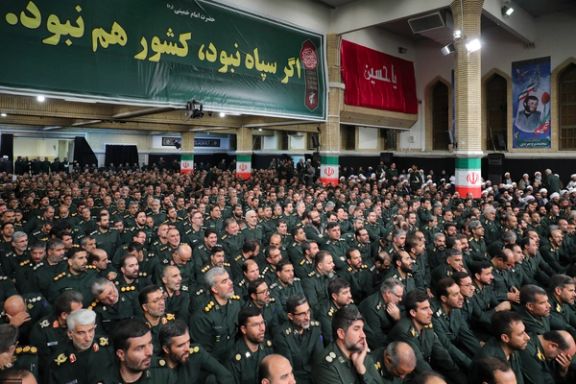
A prominent British politician has called for further pressure upon his government to designate Iran's Islamic Revolutionary Guard Corps as a terrorist organization.
David Jones, a former British minister, voiced his concerns in an op-ed published in The Telegraph, emphasizing the need to go beyond current sanctions and formally recognize the IRGC's status as a threat to national security.
For several years, Jones, along with other British parliamentarians, has advocated for the IRGC to be proscribed as a foreign terrorist organization. Recent developments suggest that the UK's Home Secretary Suella Braverman is taking these concerns seriously, with reports indicating heightened Iranian agent activities inside the UK. These activities are believed to involve collaboration with criminal networks targeting political opponents, making the IRGC a top-tier threat to the UK's national security.
In recent years, the IRGC's role in suppressing dissent among the Iranian population has become increasingly evident. The November 2019 nationwide anti-regime uprising saw the IRGC ruthlessly quelling protests, resulting in the deaths of 1,500 protesters in five days.
Over the past year, the IRGC's brutal tactics have led to the deaths of hundreds of regime opponents, mostly at the hands of the IRGC itself, during Iran's latest uprising that began in September. These fatalities have been accompanied by roughly 30,000 arrests.
In a parliamentary session in June, members of the British Parliament expressed their concerns over the IRGC's terrorist activities and global threats, including those within the UK, calling for its formal designation as a terrorist organization.
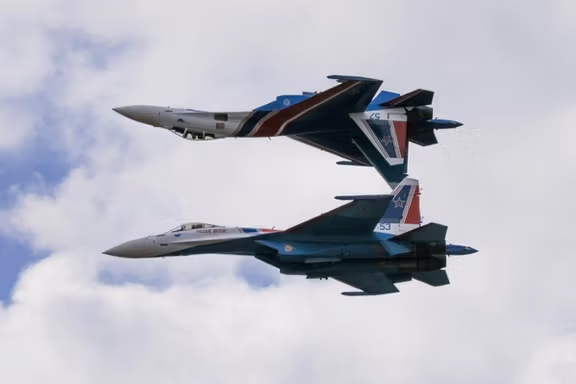
Iran's pursuit of advanced warplanes from its ally Russia to modernize its aging fleet has faced numerous hurdles, plunging the regime into a state of uncertainty.
While Iran recently took delivery of a batch of Russian-made Yakovlev Yak-130 pilot training aircraft, these light jet trainers fall far short of the twin-engine, supermaneuverable air superiority Russian fighters, like the Sukhoi Su-35, which Iran had been seeking for years.
For a considerable time, Iran had been making announcements about the "imminent" delivery of Su-35 fighter jets. However, the hopes of acquiring these advanced aircraft were dashed when Iran's Defense Minister confirmed in July that the deal had collapsed. Moreover, Iran's claims of domestic production capabilities for such fighters have yet to materialize. While Iran has supplied Russia with kamikaze drones for its war on Ukraine, these efforts have led to several rounds of sanctions against the Iranian regime.
Paradoxically, Moscow has been unwilling to sell modern fighter jets or advanced aerial warfare systems to Iran. This reluctance stems from a range of concerns, including geopolitical considerations and regional stability.
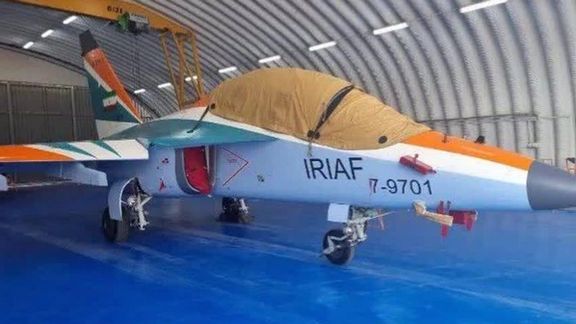
One primary factor contributing to Russia's hesitancy to supply Iran with high-tech fighter jets is the absence of bargaining leverage on Iran's part. Iran's economic challenges, compounded by international sanctions, have limited its ability to secure favorable terms for such purchases. On a similar note, China has refrained from providing Iran with high-tech fighter jets, as Beijing is wary of potential US retaliation. What's more, China is known to be cautious about jeopardizing its own programs, as it seeks to profit from weapons deals. For example, Iran prefers to pay in oil and natural gas, rather than dollars or euros, in its dealings with China.
According to Zhou Chenming, a Beijing-based defense analyst, China has already accumulated significant energy reserves and is primarily focused on making money through arms deals. Consequently, China has been reluctant to engage in potential deals involving its Chengdu J-10C fighter jets with Tehran. Even attempts by the United States to sell advanced F-16 fighter jets to Taiwan, which concerned China greatly, did not persuade Beijing to offer its Chengdu J-10 fighter jets to Iran in retaliation.
The political climate between Iran and its two major allies, Russia and China, while often collaborative on other fronts, has not yielded significant advancements in Iran's deteriorating aerial arsenal. A significant factor contributing to Russia and China's caution is the delicate balance of their relations with Arab countries in the Middle East. Many Arab nations have expressed their unease and opposition to Iran acquiring fighter jets, fearing that it could shift the balance of power in the region. This apprehension has encouraged Russia and China to tread cautiously, as they do not wish to strain their relationships with key Arab trading partners.
Considering these challenges, the arrival of two Yak-130 light training aircraft in Iran has been portrayed by the regime's media as evidence that Russia would eventually start supplying its modern warplanes to Iran. Some analysts have speculated that the war in Ukraine has disrupted the delivery of Su-35s, leading to delays.
Defense Minister Ashtiani, in an article published in the government's Arabic-language daily al-Vefagh newspaper, claimed that all arms embargoes imposed on Iran are set to expire soon, expressing eagerness to expand military ties. European Union ballistic missile sanctions are scheduled to expire on October 18 under the UN resolution endorsing the 2015 nuclear deal. However, European diplomats are considering retaining these sanctions.
Analysts like Sasan Karimi have suggested that concerns by the US and Europe about Iran's plans to acquire high-tech fighter jets may have eased due to recent reports of behind-the-scenes negotiations between Tehran and Washington. While the exact timing of any Su-35 delivery remains uncertain, some believe that it is more logical for this to occur after the expiration of sanctions in October.
The aging nature of Iran's military aircraft is no secret. Some of Iran's fighter jets, like the F-4 and F-5, are well over half a century old, while the more advanced F-14 was procured before the Islamic revolution of 1979. Given Iran's pressing need to modernize its military fleet, China and Russia currently remain Iran's only options for procurement. This is because other fighter-producing countries, such as the United States, Europe, Sweden, and France, are unlikely to supply any weapons. Additionally, the production of fighter jets in Japan and South Korea is closely tied to joint programs with the United States.
Even if Russia and China were to consider supplying Iran with newer fighter jets, it is highly likely that the numbers would be limited to avoid posing a substantial threat to Tehran’s regional rivals. According to different sources, Russia itself has about 110 to 150 Sukhoi Su-35s.
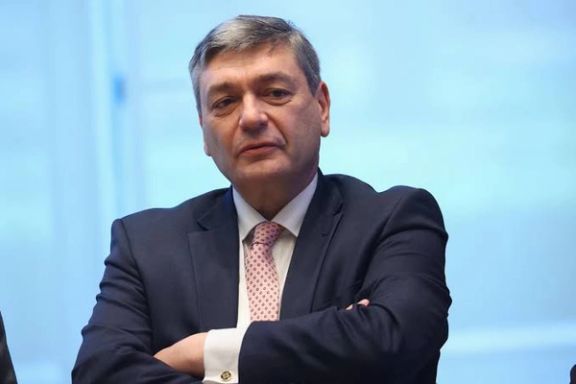
Russia and Iran are actively negotiating a new treaty to strengthen and expand their bilateral cooperation, according to Russia's Deputy Foreign Minister Andrey Rudenko.
Deputy Minister Rudenko made this announcement during a session hosted by the Valdai Discussion Club, highlighting the increasing positive momentum in Russia-Iran relations in recent years.
"We are working on a new major treaty with Iran, which will encompass, among other things, our key areas [of cooperation]," stated Deputy Foreign Minister Rudenko.
The development of this new treaty underscores the commitment of both nations to strengthening their partnership and fostering closer ties. Over the past few years, Russia-Iran relations have steadily progressed, promising further advancements in their collaboration.
During the Iranian President's visit to Moscow in January 2022, he presented a draft of a 20-year cooperation agreement, which would update the previous 2001 version. However, Moscow has yet to sign this proposed agreement.
While Iranian officials had previously suggested that preparations for the agreement were finalized and anticipated a swift signing when the two presidents met, recent reports indicate that additional preparations are deemed necessary.
One factor affecting the pace of these negotiations is the impact of international sanctions on Iran's oil industry. Notably, major Chinese and Russian companies, recognized for their global presence, have been cautious about engaging in business with Iran due to these prevailing sanctions.
Despite Iran's existing 25-year contract with China, signed on March 27, 2021, and ongoing negotiations for a 20-year economic trade deal with Russia, there has been public discontent in Iran regarding these agreements. Concerns have been voiced by many Iranians who fear that such pacts may potentially compromise the nation's interests.
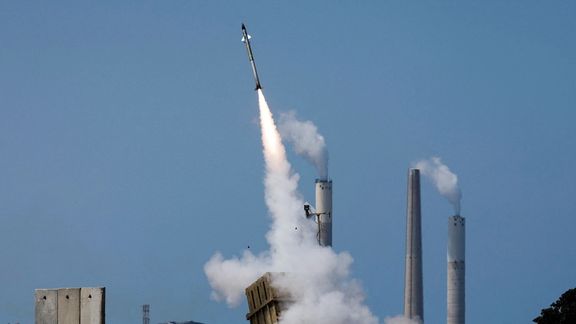
A former counter-terrorism advisor to two Israeli prime ministers triggered an intense debate about whether Iranian proxies will attack Israel in September or October.
There is, however, disagreement within Israel’s security and defense establishment over a planned Iran-backed attack against the Jewish state.
Yigal Carmon, the founder of the Middle East Media Research Institute (MEMRI) and one of Israel’s leading counter-terrorism experts, wrote an August 31st article titled “Signs Of Possible War In September-October,“ in which he argued a “confrontation could result from an uncontrolled deterioration on the ground or from the use of new and unusually deadly weapons by these movements [Hamas and Hezbollah].”
Carmon said, “neither Hamas nor Hezbollah are eager to start a comprehensive confrontation with Israel” but noted that growing acts of jingoism and saber-rattling by both Iranian regime-backed jihadi movements (including Palestinian Islamic Jihad) on Israel’s borders.
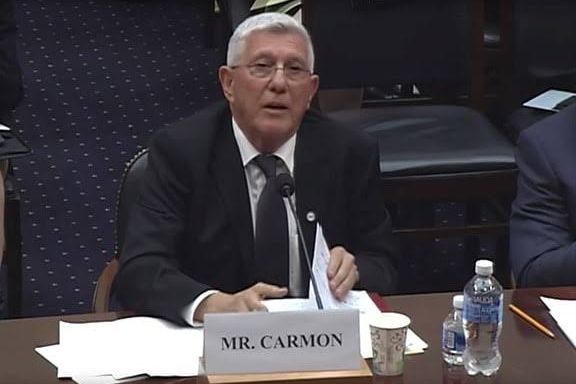
Hezbollah has set up tents in the Har Dov area within Israeli territory and was involved in “dismantling surveillance cameras along the border fence near Fatima Gate, and firing an anti-tank missile into Israel,” wrote Carmon.
Carmon, who is a fluent Arabic speaker, added “Hezbollah, which does not recognize the Blue Line as the international border between Lebanon and Israel, has recently made a new territorial claim, demanding that Israel give Lebanon sovereignty over the northern Rosh Hanikra railway tunnel, likewise in Israeli territory. At the same time, it also demands to curtail UNIFIL's freedom of action in South Lebanon.”
The US government and many European states have classified Iran’s strategic partner, Hezbollah, a foreign terrorist organization. Both the US and EU have designated Hamas and the PIJ terrorist entities.
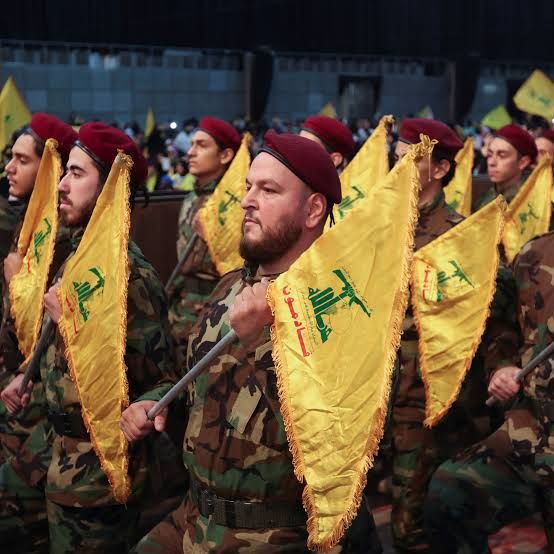
Carmon wrote, “There has also been an increase in efforts by Iran and Hezbollah to smuggle weapons into the West Bank, similar to the smuggling of weapons into Gaza. PIJ secretary-general Ziad Al-Nakhaleh said that, during his June 2023 meeting with Iranian Leader Ali Khamenei, the latter had ‘reiterated [the need to] develop the arming of the West Bank and the resistance there.’ Nakhaleh added: ‘We, as Palestinians and as resistance forces and movements, understand the importance of arming the West Bank, but this requires efforts by the Palestinians themselves, and also the assistance of our brothers in the Islamic Republic of Iran.’”
The spike in recent activity between Iran’s foreign minister Hossein Amir-Abdollahian and Tehran’s PIJ, Hamas and Lebanese allies in Beirut was also a subject of Carmon’s analysis.

Abdollahian stressed that in the Beirut meeting the statements of Khamenei about the need "to help the West Bank" and about Iran's "ongoing [commitment to] assisting the resistance with all its might." Amir-Abdollahian added, "the establishment of the joint Hamas-PIJ [war] room reflected a smart move on the part of the resistance.”
Carmon noted that Amir-Abdollahian also met with Hezbollah Secretary-General Nasrallah, who then met with Al-'Arouri and Al-Nakhaleh to "make a joint assessment of the situation in the West Bank, the escalation of the resistance activity and the latest Israeli threats."
Abdollahian and Iran’s allies underscored at the meeting "the steadfastness and steadiness of all the forces of the resistance axis in the struggle against the Zionist enemy," and cooperation between the "resistance movements" in Palestine and Lebanon.
When asked about Carmon’s analysis, Brigadier-General (res) Amir Avivi told Iran International, "While the specter of war unfortunately always looms along and beyond our borders, whether fueled by Iranian money and weapons or online incitement, at this time I do not share the assessment of an imminent war in September or October.
The terrorist organization Hezbollah in Lebanon has indeed been conducting provocations along the border, and the other Iranian proxies have made belligerent statements.”
Avivi, the founder and CEO of the Israel Defense and Security Forum (IDSF), added, “And yes, religious holidays are historically periods of inter-community tensions, but at this time I believe that neither Hezbollah nor Hamas have an appetite for a full-blown confrontation with Israel, because they understand how devastating it would be for them.”
Carmon had also warned in his article that “During the Jewish holidays in September and October, Jews are likely to visit the Al-Aqsa compound, as happens every year. Hamas and Hezbollah spokesmen have stressed that this could lead to a regional war.”
Avivi noted that “Both Hamas and Hezbollah are suffering from internal unrest and lack of legitimacy in their respective fiefdoms, and it would be wise of them to refrain from jeopardizing their own future. Contrary to media reports and wishful thinking amongst Iranian proxies, the IDF is fully fit for combat, alert and ready to respond to any aggression."
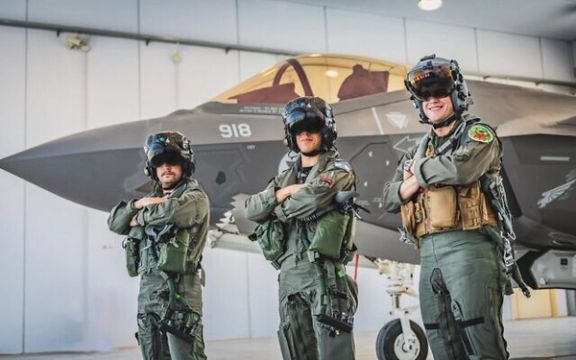
When presented with these arguments, Carmon told Iran International that “I said they [Hamas, Hezbollah and Palestinian Islamic Jihad] do not want it[war] but things can get out of control.”
Carmon raised the example of Nasrallah who said after the 2006 Second War in Lebanon about the kidnapping of Israeli soldiers that sparked the war: “We did not think, even one percent, that the capture would lead to a war at this time and of this magnitude. You ask me, if I had known on July 11 ... that the operation would lead to such a war, would I do it? I say no, absolutely not.”
A second factor that is part and parcel of Carmon’s “uncontrolled deterioration” framework during the lead up to the full-blown war in 2006 was the entry of an Israeli Merkava 2 tank into Lebanon that passed over a massive explosive device, destroying the tank and killing its four crew members.
Carmon said “People do things without knowing repercussions. This is what happens when people like Avivi listen only to themselves and not to the other side.” Carmon also warned about the shipments of advanced new weapons, including Kornet anti-tank missiles, to Iran-backed terrorist terrorists, that can be used by against Israelis.






